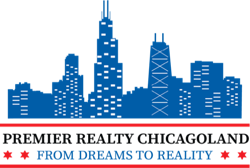Foreclosure is NOT your only option!
Foreclosure is the legal process initiated by a creditor to repossess the collateral for a loan that is in default. Simply put, when a person or entity fails to make a mortgage payment, the lender (bank) has the right to start legal proceedings to repossess the collateral (or property) to recoup some or all of their losses. When this happens, the borrower can face up to 7 years of credit issues. After 30 days have passed and a borrower fails to make their mortgage payment, they are considered in default. The lender can initiate the legal process of foreclosure within the court system after the third payment has been missed. At this point, the borrower has the following options:
A successful short sale means the seller’s lender is willing to accept a discounted payoff to release an existing mortgage. Just because a property is listed with short sale terms does not mean the lender will accept your offer, even if the seller accepts it. That’s because sellers need to qualify for a short sale. If their agent sells very few short sales, that’s a red flag for your buyer.
Be aware that the seller need not be in default—to have stopped making mortgage payments—before a lender will consider a short sale. A lender may consider a short sale if the seller is current but the value has fallen. The seller may be overencumbered, that is, owe more than the home is worth, so a discounted price might bring the price in line with market value, not below it.

Please visit our sister company. We can help you sell or find your happy home!
The information on this website is intended to be used for informational purposes only and to provide a general overview of the short sale and/or negotiation processes. All information provided by our clients is kept strictly confidential. There may be tax and other legal consequences associated with a short sale. ATC Mitigation Services, Inc. makes no representations or warranties concerning potential tax or legal consequences relating to any final disposition of any property. Clients are advised to consult with a tax professional regarding the potential tax consequences for their particular situation. ATC Mitigation Services, Inc. is providing a service in response to a complex situation and offers recommended solutions where possible. Nothing is represented as tax or legal advice to our clients, as every situation may result in different tax and/or legal consequences. ATC Mitigation Services, Inc. is not a law firm or an accounting firm and regarding any specific questions relative to any transaction, ATC Mitigation Services, Inc. strongly encourages all parties, agents, and brokers involved in a transaction to seek such advice from a professional advisor.
ATC Mitigation Services, Inc. serves as a 3rd party negotiator and does not guarantee any action or inaction on the part of the lender. Each state has their own respective laws, and ATC Mitigation Services, Inc. strongly advises that clients review short sale approvals with a licensed attorney in their state. We assume no liability from the outcome of our mitigation on your behalf. All negotiations are performed in good faith, based on the information provided to us.
Copyright © 2022 ATC Mitigation Services Inc